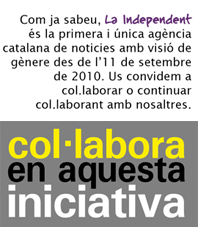
foto: twitter saraberbels
On the occasion of International Day of the Equal Pay held on February 22, the union UGT has presented a report which updates the data wage gap between women and men. The findings are not positive because in the last years of crisis the wage gap has widened from 19% to 24%, which shows, once again, that the crisis is having a big bill for women and cooperating in the fearsome feminization of poverty.
When we’re talking about wage gap we are not saying that in the same job and the same category covers a woman less than a man, as many people believe (and as unfortunately happens from time to time though), but we refer the difference in average annual earnings of men towards women. I find that this is not reducing but, on the contrary, increased. Fortunately, not many are direct discrimination but indirectly, as we are analyzing.
The reasons are many; one of the most crucial is the impact on female wages that over 70% of part-time contracts correspond to women. Secondly, the concentration of women in certain professions which are precisely those that have less recognition, lower wages and with the crisis have been most affected, such as social services, health and education. A third factor is the absence of women in decision-making positions, which are where you can charge higher wages (despite also are suffering a serious wage difference, up to 30%). As we can see, all of these factors mean a devaluation of the feminine in the society, a smear of female labor, closely linked to the assignment of gender for both sexes.
I say this not because women work part-time to make your desire but because it is the type of contracts offered to them, since it is considered that they have to reconcile work and personal life, and not men. Same with their access to decision-making positions which often cannot get, either because they are not invited, either because they cannot reconcile absolute availability required with current models of management responsibilities, although the majority in the home.
Therefore, analyze the wage gap implies wondering about the implicit agreements in the public and private sectors, and in the sense of this dichotomy. While not required household responsibility to men, while no measures have positive rate quotas to break the glass ceiling, while not regulate, precarious and partial contracts is addressed to women, gap wages will not decrease. Close the wage gap implies a strong commitment to equality policies and the conviction that women have the right to choose how they want to develop themselves personally and professionally without constraints that prevent it just because they are women.
This is the challenge that our society cannot escape.




